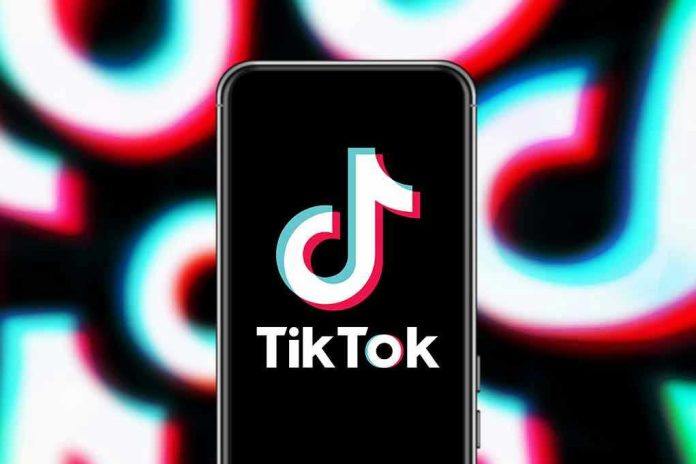
The White House’s new TikTok campaign courts Gen Z while critics warn it ignores deeper threats to conservative values and national security.
Story Snapshot
- The Trump White House launched an official TikTok account, rapidly amassing followers despite prior bans and national security concerns.
- This marks a dramatic shift in GOP youth outreach, aiming to counter progressive dominance among Gen Z voters.
- The campaign occurs amid persistent legal controversy over TikTok’s Chinese ownership and data security risks.
- Experts caution that digital outreach alone may not reverse Gen Z’s drift leftward, raising questions about the effectiveness of this approach.
Trump’s TikTok Push: A Calculated Gamble for Gen Z Support
On August 20, 2025, the White House ignited debate by launching its first official TikTok account, prominently featuring President Trump in the opening posts. Within 24 hours, the account gained over 155,000 followers and nearly 300,000 likes, signaling intense interest—yet also reviving concerns about the platform’s Chinese ties. For many conservatives, this move represents a bold attempt to recapture the attention of younger voters increasingly swayed by progressive voices and digital activism. The administration’s strategy acknowledges the influence TikTok holds over Gen Z, but it also exposes the White House to criticism for embracing a platform previously targeted for national security risks.
President Trump’s direct involvement in the TikTok rollout underscores a top-down commitment to modernizing Republican outreach. The White House communications team, in partnership with the RNC, is aiming to meet young Americans where they spend their time—on short-form video platforms. This shift reflects a broader trend among political campaigns to leverage digital culture, but it’s a notable reversal for Trump, who once moved to ban TikTok from government devices and called for ByteDance to divest its U.S. operations. By now using TikTok as an official megaphone, the administration signals a pragmatic willingness to adapt tactics, even if it means entering contested digital territory.
Legal, Security, and Cultural Risks Surrounding TikTok
The White House’s TikTok debut comes while the app remains banned on most federal devices and its Chinese ownership is under bipartisan scrutiny. Legal uncertainty persists, given ongoing demands for ByteDance to sell its U.S. operations or face a nationwide ban. National security experts warn that TikTok’s data collection and algorithmic influence could compromise user privacy and potentially shape American political discourse in ways that defy transparency or accountability. For constitutionalists and those concerned with safeguarding American sovereignty, this pivot raises serious questions: Does courting Gen Z justify exposure to foreign surveillance risks, or does it open the door to further erosion of national security safeguards?
Amid these concerns, the White House’s rapid follower growth on TikTok is both a political victory and a source of constitutional anxiety. Critics argue that embracing a platform with unresolved security issues signals inconsistency, especially given the administration’s past warnings about foreign influence. Furthermore, the move could embolden big tech and foreign-owned platforms to expect concessions from U.S. policymakers, potentially undermining conservative principles of limited government and national security-first governance. The administration’s willingness to delay enforcement of previous bans, in the name of digital engagement, highlights the tension between electoral strategy and the protection of American values.
Challenges in Winning Over Gen Z: Beyond Social Media Tactics
While the White House’s TikTok campaign has generated buzz, experts caution that digital outreach alone is unlikely to shift the political allegiances of Gen Z, a cohort increasingly drawn to progressive policies on issues like climate, gun control, and social justice. Republican strategists acknowledge that while Trump’s social media presence may energize certain segments—especially young men—young women remain largely aligned with the Left, especially on cultural and family issues. This generational divide underscores the limits of relying solely on platforms like TikTok to foster genuine conservative support, especially if foundational concerns about government overreach, constitutional rights, and fiscal responsibility remain unaddressed.
TikTok isn't enough to stop Gen Z from drifting to AOC. Trump must do 3 things next https://t.co/iCR7iCs7Gh #FoxNews
— OTBS Media (@otbsmedia) August 23, 2025
Broader impacts of the White House’s digital strategy include heightened polarization and increasing pressure on other political actors to adopt similar tactics. The embrace of influencer culture and short-form video may yield short-term gains, but conservative leaders warn that such trends risk diluting core values in favor of style over substance. As the administration navigates the balance between modern outreach and principled governance, the unresolved legal status of TikTok and ongoing security debates serve as reminders that effective youth engagement requires more than just digital savvy—it demands a clear, values-driven message that resonates beyond fleeting viral moments.
Sources:
Trump relaunches TikTok White House account
NBC News TikTok White House coverage



